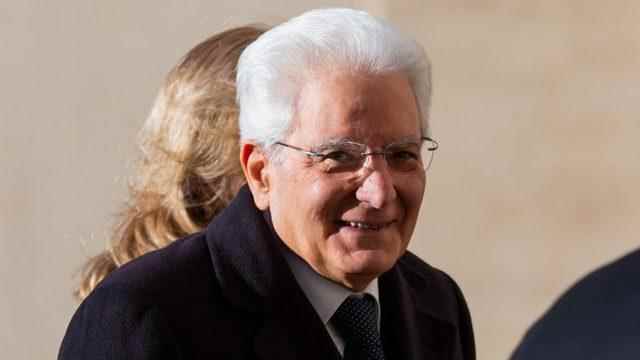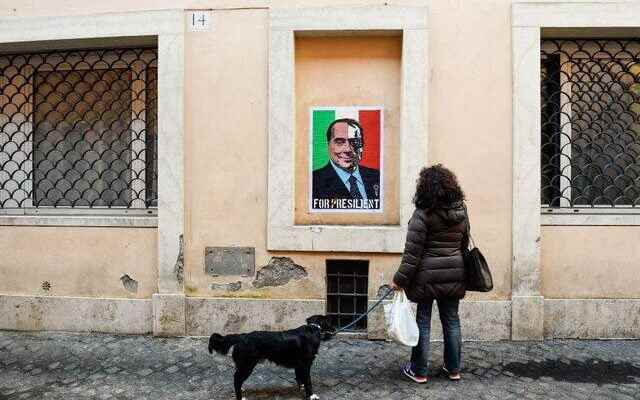The presidential election in Italy, which is dominated by uncertainties and concerns about loss of stability, starts today.
Uncertainties lasting until the last day due to the structure of the electoral system and the delicate balances in the government were interpreted as “chaos” in the news in the Italian press yesterday.
The presidents, whose tenure is 7 years, are elected by a “large electoral assembly” of 1009 people, consisting of parliamentarians and regional representatives.
In order to win the elections, where there is no official candidacy process, it is necessary to get 2/3 of the votes in the first 3 rounds. If no name can reach this rate of votes in the first 3 rounds, 505 votes corresponding to the absolute majority are considered sufficient as of the 4th round.
The distribution of political parties in the current parliament does not guarantee that any alliance will reach these rates. Therefore, before the election, the negotiations between the parties standing in different parts of the political spectrum continued until the last moment.
Berlusconi threw in the towel at the last moment
The only person who announced that he wanted to be President and campaigned openly for it was the former Prime Minister. Silvio Berlusconi it happened.
It was calculated that Berlusconi, together with the other right-wing parties he was in alliance with, would receive the support of about 450 delegates. Berlusconi has tried to persuade the parliamentarians by phone in recent days in order to increase the number of supporters to the absolute majority of 505.
Some of the parliamentarians who received a phone call from Berlusconi relayed these conversations to the press and asked, “Would you like to come to the bunga bunga party?” He explained that he also made jokes such as
However, it seems that he could not reach the majority in these persuasion rounds, Berlusconi announced that he withdrew by ending his presidential campaign on Saturday evening.
Opponents of Silvio Berlusconi’s becoming president cite a multitude of justifications, from his tax evasion conviction to sex scandals, making him a divisive figure since he was party leader and could not be an impartial president.
Concerns that if Draghi is elected, the government will disintegrate.
Among the possible candidates, one of the most fortunate is current Prime Minister Mario Draghi. Draghi has been adamantly refraining from answering questions about the presidential election for weeks, but those with a good grasp of the backstage are unanimous that he wants the post.
Mario Draghi, the former European Central Bank President, was appointed as foreign prime minister by the president last February due to the government crisis.
Draghi currently leads a broad coalition government that includes most of the parties in parliament.
The fate of Draghi is being watched closely due to his international prestige and his recognition as a key figure in the management of pandemic support funds from the EU.
The possibility of the coalition government falling apart if Draghi is elected president also creates a new political instability concern.
It is also pointed out that the parliamentarians may not support Draghi’s presidency for fear of losing their seats if the government falls and early elections are held.
Mattarella does not want a second term
Pier Ferdinando Casini, former Speaker of the House of Representatives, is one of the prominent names in the presidential race.
Giuliano Amato, one of the former prime ministers, is also considered among the possible candidates.
The names of Senate President Maria Elisabetta Alberti Casellati and Justice Minister Marta Cartabia are also mentioned among the possibilities, following calls for a woman to be elected to the presidency.
Another possible scenario is the re-election of current President Sergio Mattarella.

Mattarella, who was elected president in 2015, has flatly rejected calls for him to stay in office for another term, but that scenario is not entirely out of the question.
Of the 12 presidents who have served in Italy since the proclamation of the republic in 1946, only Giorgio Napolitano was elected twice.
However, Napolitano resigned 2 years before completing his 7-year term after being elected to a second term in 2013.
In the elections held after Napolitano’s resignation, the current President Mattarella took office. Mattarella’s term expires on February 3.
In the elections, which start on Monday, it is planned to hold one vote per day.
Due to the pandemic, measures have been taken, such as limiting the number of delegates to be taken to the hall and establishing a special ballot box for Covid-positive delegates.
Delegates who are positive will be able to vote in a special ballot box set up in the garage of the House of Representatives.
